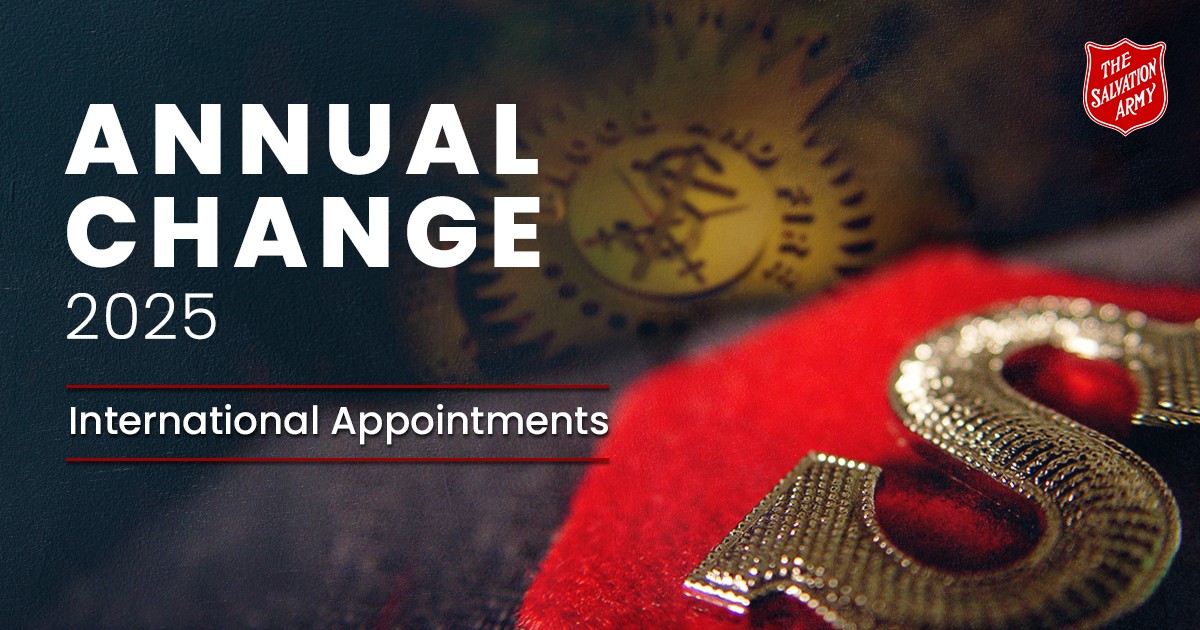 I wonder why my mother wasn't a crack addict or why I wasn't born in poverty. Why wasn't I born HIV positive or abused as a child? I could have faced these horrors in my life, and I know some of you have, but the reasons why I was spared were out of my control.
I wonder why my mother wasn't a crack addict or why I wasn't born in poverty. Why wasn't I born HIV positive or abused as a child? I could have faced these horrors in my life, and I know some of you have, but the reasons why I was spared were out of my control.
There are many things that shape our lives that we have no control over. We don't choose our parents and siblings, skin colour, economic status as children and, almost always, when we die.
The people we work with at The Gateway, a Salvation Army shelter for men and drop-in centre in downtown Toronto, have had situations in their lives that they wouldn't have chosen. Stories of horrible abuse and destruction permeate our community. Given the histories of some of the men who have stayed here, it's a wonder they're still alive.
Sometimes we scratch our heads when we witness the choices some make. We ask ourselves why people don't get a job or why they squander their rent or disability money on drugs. Decisions that seem common sense to us don't even occur to some people.
Our ability to make choices depends on the way we have been taught to make them. Somewhere along the way, most of us learned that holding down a job, paying bills and taking responsibility for our own lives are important in the process of life. Many have never learned this and do not have the ability to make healthy choices. They appear lazy, abusive, argumentative and unappreciative.
The south-central/southeast area of Toronto has the largest concentration of poverty in all of Canada. Up until the Second World War, it was the place where poor people found affordable housing and low-skilled jobs. Every decade since then has brought more people and fewer jobs, which has led to a community full of dependent people being taught to expect a high level of care. Throughout history it has been shown that the first generation of the dependent poor wants work. However, ensuing generations want care. Because of downsizing and technological advances, the need for low-skilled labour has diminished, resulting in little work for first-generation poor. Therefore, subsequent generations are being taught that it is someone else's responsibility to care for their needs. This is the scene here in Toronto, as it is in most western cities.
Do some people choose to smoke crack or stay in shelters? Do others choose a life of prostitution or to live on welfare? I suppose the answer is yes. But all people make choices based on their ability to choose. And until we start digging deeper into how people came to be where they are, we can't begin to understand why a person makes bad choices.
As Christians, our view of poverty needs to be informed by Scripture. Given that there are over 2,000 references to poverty in Scripture, it shouldn't be difficult to see God's heart revealed on this issue. The problem is our view of poverty can be influenced by political biases, social class or the media. However, Scripture portrays poverty as a circumstance beyond a person's control and balances it with a reminder of personal responsibility.
With this scriptural foundation of poverty, we must design programs that follow this understanding and strive to understand who our community is. We have to work at not labelling people as hopeless causes. We have to be creative in our approach to help people unlearn unhealthy decision-making habits.
We can do this by being consistent models of health. Some Gateway staff members have unbelievable stories. We have those who were brought up in poverty and have lived lives similar to many of our residents. Some were raised in loving families and then wandered towards drug abuse and other such vices, but they've returned to their upbringing like the prodigal son (see Luke 15:11-32). And others can model lives of a “normal” upbringing and bring stability into the picture. With the eclectic mix of life stories we share as a staff, we can identify with everyone we serve in some way or another.
This consistency, coupled with our faith and some honesty that we do not have it all together, helps us experience the joy of watching people who, having lived their lives by making one bad decision after another, begin to learn how to make healthy and life-giving decisions that will lead them to a life of health and wholeness. And in the midst of that we are reminded that our own choices are often not good ones. Perhaps in the context of these relationships, we might recognize our own brokenness and remember that this is not about “us and them” but simply about “us.”
Dion Oxford is the director of The Gateway in Toronto.









Leave a Comment